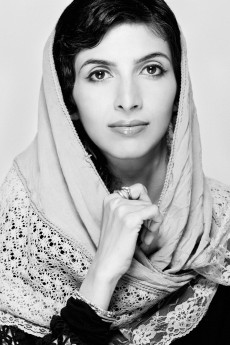 Humanities
Humanities
Direct Impact

Jason Brown and his sister had just climbed into an armored United Nations car and were being jostled through the war-ravaged streets of Kabul, Afghanistan, when they got a text message from their security consultant.
“Whatever you do, don’t get into one of those United Nations cars,” it read.
On a scale of 1 to 10, the words pretty much spun the dial on Brown’s war-zone jitters to 11. An associate professor of creative writing, Brown had barely arrived in Kabul with his sister, Elizabeth Schaeffer Brown, and already their carefully crafted security plan had taken a wrong turn.
Assigned a freelance magazine feature for Salon.com, the two made the journey to interview family and friends of Roya Mahboob (right), an Afghan woman whose work teaching computer literacy to young girls had generated outrage in a society that often restricts girls’ access to education. Facing death threats, Mahboob had fled to New York, where Brown and his sister interviewed her before leaving for Afghanistan to talk with those close to her. Their fascinating profile was published in March.
 Brown (left) is happy to admit he’s no war correspondent—he is best known for short story fiction centered on his childhood in rural Maine—so his visit to a still-dangerous nation was a big step outside his life in Eugene. But the resulting story, a long-form nonfiction article that let Brown apply fiction writing tools to a real-life story, let him stretch in other ways, too.
Brown (left) is happy to admit he’s no war correspondent—he is best known for short story fiction centered on his childhood in rural Maine—so his visit to a still-dangerous nation was a big step outside his life in Eugene. But the resulting story, a long-form nonfiction article that let Brown apply fiction writing tools to a real-life story, let him stretch in other ways, too.
Brown believes too much of today’s fiction and nonfiction centers on the writer—an inward focus he also sees in creative writing programs across the country. He wants to turn the writing spotlight outward, to stories that matter, and if that requires traveling to a recent war zone, well, nothing says commitment like braving suicide bombers and kidnappers.
“What’s really interested me over the years is nonfiction that doesn’t look inward, it looks outward,” Brown said. “This is a form of creative writing that takes life—someone else’s story or something that’s going on in life—as the most important priority in the creative process. This is a way of using some of the skills of fiction to reach a lay audience, to have the possibility of having direct impact.”
A month of planning didn’t really prepare Brown for the reality of Afghanistan, where the best advice was to get in and out quickly, before danger caught up with them, and to keep the lowest of profiles—hence the security advisor’s concern about being in a UN car.
The trip was shorter than it seemed: two days in Kabul visiting Mahboob’s students and a girls’ soccer team she supports, then two days interviewing family members in the northwestern city of Herat. They returned unscathed, but not unmoved.
The experience left Brown with deep respect for people like Mahboob and her family, who have lived their whole lives not knowing what danger each day will bring.
“For the Mahboobs and people like them, threat has always been a part of their lives, war has been a part of their lives, and they’ve had to live with it one way or the other,” he said. “I’m just a middle-class guy from Maine, and that’s just an amazing thing to encounter.”
―Greg Bolt
Photo of Mahboob: CC Alena Soboleva


 Twitter
Twitter Facebook
Facebook Forward
Forward